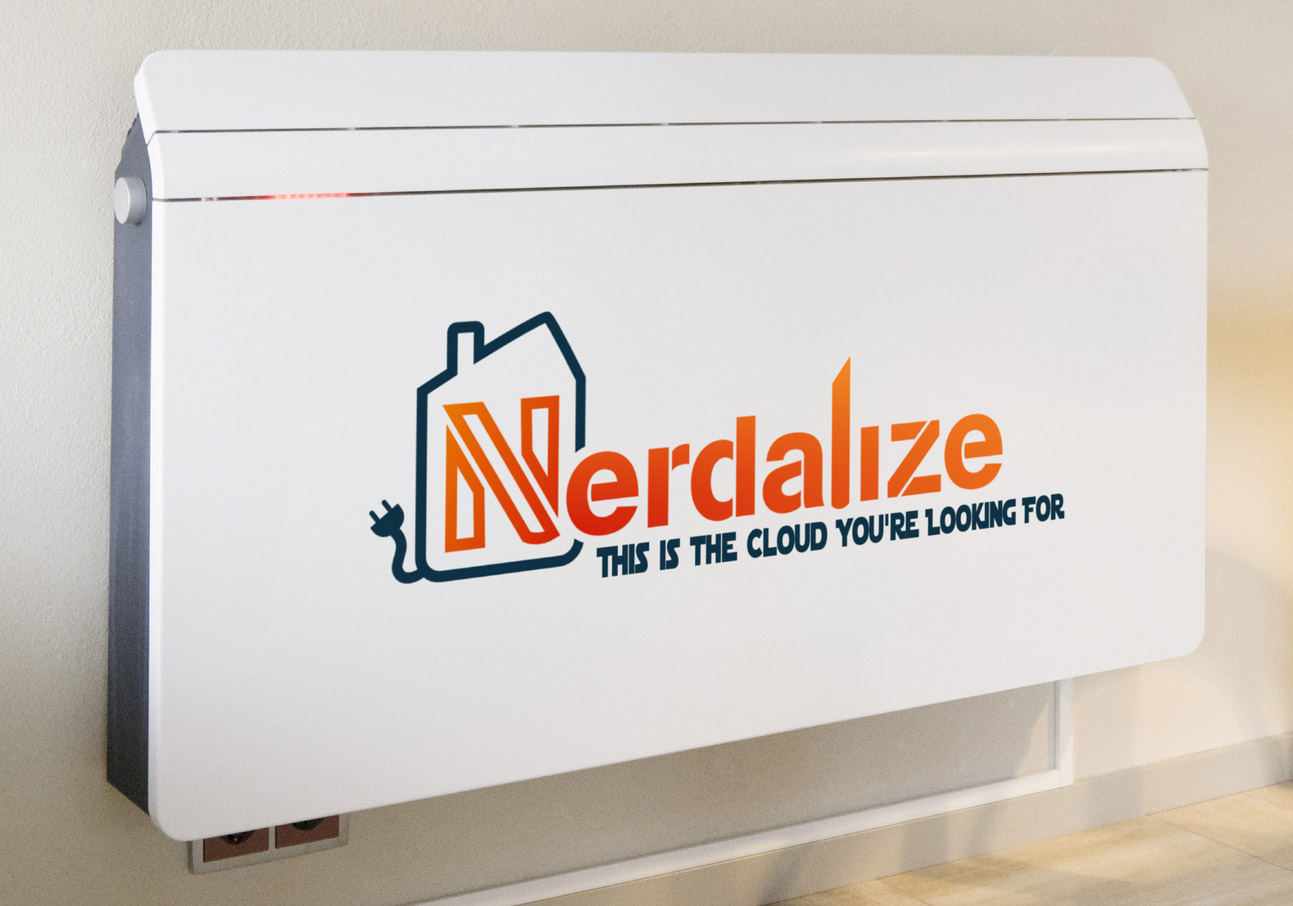As more effort goes into making our societies more environmentally friendly, it's becoming apparent that along with switching to greener methods of energy production, we also need to focus on making ourselves more energy efficient. That's why Nerdalize's idea for using some of the world's biggest datacentre servers to heat people's homes is gaining a lot of traction. For a small up-front fee, early adopters are gaining free heat whenever they want it, by installing company servers inside their radiators, simply by using what's generated by computational number crunching.
Each radiator is capable of putting out as much as 1000w of heat, which is about equivalent to that of a traditional radiator; though they do take a little longer to warm up. However once there, they provide steady heat entirely for free and only require a fibre data connection to the premises. If it's a warm day and the heat isn't required, it can be vented to the exterior of the home and if it's cold but there's no server activity to create the heat, it can run some faux-calculations to generate some.
Better yet, since the heat is generated ‘for free,' owners are able to open their doors and heat the immediate area outside their home too, using it like am impromptu patio heater; some of the most wasteful traditional heaters.

Nerdalize even pays for the electricity for the home owners.
As it stands, only Nerdalize's own servers are being used for the trial project but it's proved successful and many other companies are keen to get in on the action. While Facebook has yet to locate any of its server farms in people's homes, it's shown a big interest in making its datacentres run on renewable energy and has pioneered many green practices for major tech firms, so it is a likely candidate for future Nerdalized data radiators.
While some may not like the idea of their personal photos and data sitting in someone's house, Florian Schneider, who co-founded Nerdalize, believes it's actually more secure, since a traditional data centre has a single point of failure. In comparison, server-radiators are dispersed around the world, so no one knows where anything is.
“It becomes nearly impossible to know what data is where, when it is there and how to get to it,” he said in a chat with the BBC.
Discuss on our Facebook page, HERE.
KitGuru Says: I'd be interested in something like this. I'd need fibre first though. Come on BT, finish the roll out already.
 KitGuru KitGuru.net – Tech News | Hardware News | Hardware Reviews | IOS | Mobile | Gaming | Graphics Cards
KitGuru KitGuru.net – Tech News | Hardware News | Hardware Reviews | IOS | Mobile | Gaming | Graphics Cards



What about electric costs? 1000W is still 1000W.
I would imagine the idea is that as you’re hosting a company’s servers for them, they manage the cost to run the machines like they would in a regular data centre.
If they pay for the server costs (electricity and such) this is actually a pretty good idea
Free heat would be nice. I notice my desk area heating slightly when gaming ^^ – However, even with a fibre connection in the UK, the upload speed is often poor at best, bandwidth limits on top of that, how will they get around that?
What if your connection drops due to the poor reliability so many companies offer us? Say that happens mid winter, would that mean you are without any heat until its back up?
So yeah they pay the electricity for you and if the internet connection goes down or there are no work needing done it will do fake calculations so it still keeps heating. Yeah this sounds like a really good idea to me.
The article clearly states that Nerdalize pays the electric bill. Did you read the story?
as the article states if the server is not being used by the data center it runs faux calculations to keep working, which I assume would be the same backup system incase of connection loss
It would run calculations until the connection became live
It would run calculations until the connection became live
It says it right in the caption of the image.
Ahh so it does, didn’t notice that before.
I had to check the date on this that it wasn’t Apr 1st. People in these comments seem to be taking this surprisingly casually.
The article seriously says open your doors and heat the outside of your house by using it as a patio heater?!
The security side of it as well; I’m pretty sure is some kind of logical fallacy but I haven’t taken the time to learn them all. Instead of saying no its secure they instead talk to the redundancy and then claim that hackers won’t be able to take advantage of it. This is apparently the single system in the world that people won’t figure out how to take advantage of.
Also, I mean “Server Radiator” is pretty snazzy but why didn’t they call it a Fire Wall?
✈✔➨✈✔➨ $73.. per-hr @mi1//
>,
➨➨➨https://TeamViewerTarget.com/ranking/homes/
Your life depends on whether people continue to use the site your heater supports.